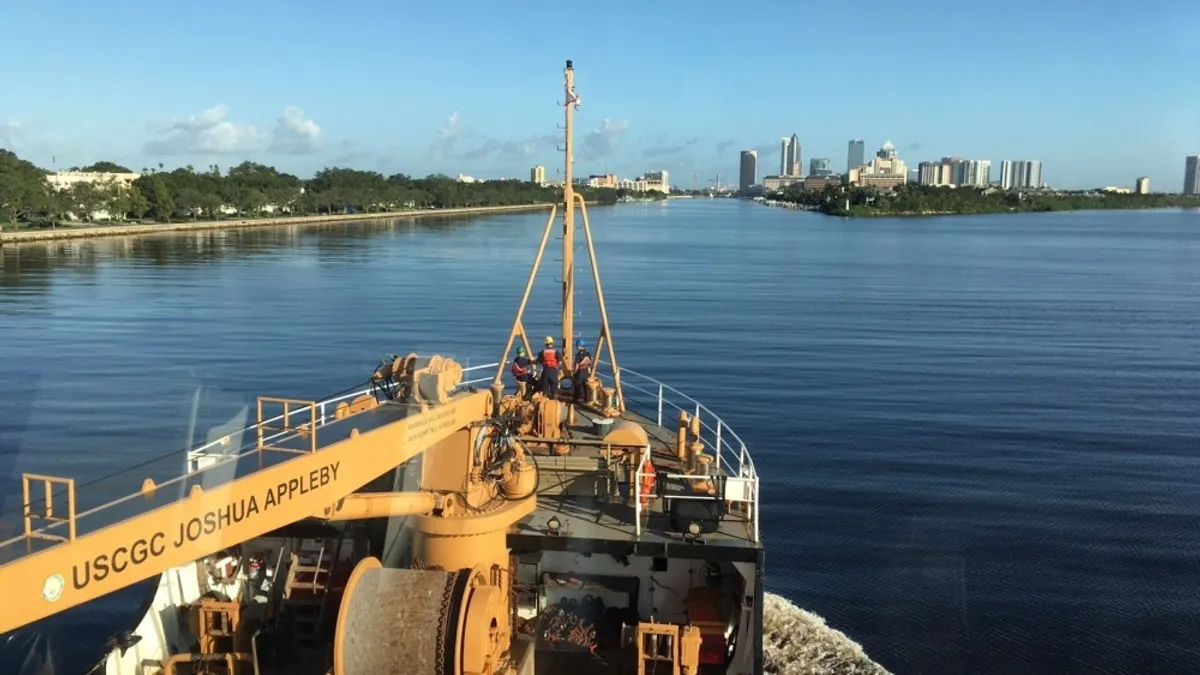Dive Brief:
- Officials at the COP24 global climate summit in Poland are sounding the alarm about the susceptibility of coastal ports to climate change, according to World Maritime News.
- The United Nations Conference on Trade and Development (UNCTAD) chief of policy and legislation Regina Asariotis said during the summit that since coastlines could be some of the most affected areas, global trade is likely to be greatly affected as it relies so heavily on ports.
- UNCTAD put the burden of responding to climate change on all countries and actors who rely on ocean shipping for trade, especially calling out developing nations whose economies are more vulnerable. Asariotis said policymakers are not currently moving fast enough to address the problem.
Dive Insight:
The COP24 meeting is driving a renewed focus on actions both private and public sector actors can take. Adding to the urgency is a recent International Energy Agency report stating that countries with advanced economies (North America, the European Union and parts of Asia) have actually increased their carbon emissions in 2018 after five years of decline.
With rising tides and more volatile weather a certainty according to the global scientific community, ports are likely to be some of the first supply chain infrastructures to feel the effects of climate change. Last month's U.S. National Climate Assessment warned that ports can expect "land sinking" as tides rise by one to four feet by 2100. Rising tides could also lead to clearance issues.
Asariotis made a point that is becoming more common as the threat of climate change comes into focus: Industry cannot wait for regulation to force it away from the status quo. Asariotis put the responsibility on all players involved in ocean shipping to prepare for and prevent what climate change effects can be mitigated.
Though all ocean carriers are already required by the International Maritime Organization (IMO) to cut their sulfur emissions by 2020, there are no such restrictions around carbon. A.P. Moller - Maersk is the first carrier to pledge to attempt carbon neutrality by 2050, though it emphasized in its announcement last week the vessel technology needed to meet that goal does not yet exist.













